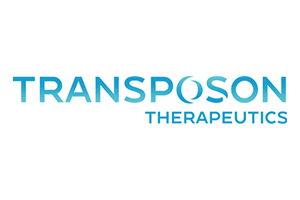Transposon Therapeutics
Transformational therapies for neurodegenerative and aging-related diseases
Transposon is developing nucleoside inhibitors of LINE-1 reverse transcriptase (NRTI) and other mediators of LINE-1 pathology (e.g., Protein Kinase R inhibitors [PKR]) for the treatment of neurodegenerative disease.
The most potent known inhibitor of LINE-1 reverse transcriptase is currently under study in two Phase 2a clinical trials.
Our lead reverse transcriptase inhibitor, TPN-101, is the most potent known inhibitor of LINE-1 reverse transcriptase and has excellent systemic and brain bioavailability with once daily oral dosing. TPN-101, also known as censavudine, was well tolerated in a 48-week study of over 220 HIV patients.
The current TPN-101 Phase 2a clinical development program is designed to establish proof-of-concept for treating several neurodegenerative diseases with high unmet medical need and evidence for involvement of LINE-1 reverse transcriptase. Biomarkers will be used to measure changes in inflammation and neurodegeneration to establish proof-of-concept along with safety and clinical efficacy assessments.
A devastating orphan disease, with mean survival of 6 to 7 years, characterized by early postural instability and falls, vertical gaze palsy, akinesia, rigidity, pseudobulbar palsy, and frontal dysfunction with cognitive and behavioral changes.
The median survival for ALS is 3 years and 9 years for FTD. When ALS and FTD present as co-morbidities, survival is markedly reduced.
ALS is an orphan disease characterized by progressive muscle weakness and loss of ability to speak, eat, move or breathe.
FTD is a progressive frontal / temporal cortex disease associated with behavior and personality changes, emotional problems, difficulty communicating, working or walking.
AGS is an ultrarare severe pediatric disease generally presenting in infancy; many patients do not survive childhood. Neuronal degeneration causes massive brain damage and loss of developmental milestones beginning shortly after birth and can result in heart and muscle damage.
Transposon-proprietary NRTIs will allow rapid exploration of new indications in which there is compelling evidence for LINE-1 related pathology.
Transposon employs informatics and pharmacology research to identify neurologic as well as age-related and autoimmune diseases associated with LINE-1 pathology. Transposon’s inhibitor discovery program has developed a robust pipeline of innovative next generation LINE-1 inhibitors which will be deployed to explore selected disease indications with high unmet medical needs.
Downstream druggable targets in the LINE-1 pathway, such as Protein Kinase R (PKR), may be additive or synergistic with LINE-1 reverse transcriptase inhibitor treatment.
Protein kinase R (PKR) is elevated in the cerebrospinal fluid of Alzheimer’s Disease patients, and the degree of elevation correlates with severity of cognitive impairment. Knock-out of the PKR gene in mice leads to improved cognition and memory formation. Small molecule PKR inhibitors have been shown to improve memory and cognition in mouse models.
Our PKR inhibitor discovery program evaluates innovative small molecules for the treatment of compromised cognition and memory associated with central nervous system diseases.
Transposon is powered by world renowned, pioneering scientists, experienced drug development experts with a collective record of over 30 NDA approvals, and repeat entrepreneurs.









